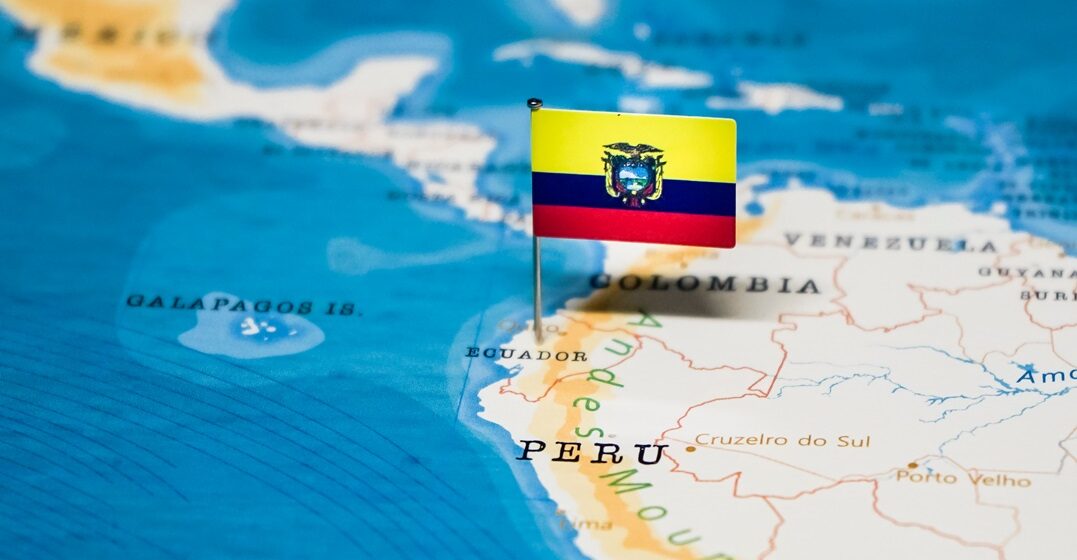Ecuadorian Spanish: How to sound like a local

If you plan to visit or move to Ecuador, get ready to practice your best Ecuadorian Spanish. As you may know, Spanish is Ecuador's official language. But it isn’t the only language you’ll hear in the country. The Incan Empire language of Quechua is also spoken by many indigenous people in Ecuador, along with eight other indigenous languages.
As is true in most Spanish-speaking countries, Ecuadorian pronunciation and vocabulary are unique to the country. From the use of diminutives to the aspirated final "s," Ecuadorian Spanish offers a number of idiosyncrasies for Spanish-language learners to study and enjoy.
Now, let’s learn some words, phrases, sayings, greetings and slang in Ecuadorian Spanish.
- Do they speak Spanish in Ecuador?
- Characteristics of Ecuadorian Spanish
- What does the Ecuadorian accent sound like?
- Ecuadorian Spanish slang and vocabulary
Learn languages at your pace
Do they speak Spanish in Ecuador?
Yes, Spanish is the official language of Ecuador. According to the Facultad Latinoamericana de Ciencias Sociales (FLASCO), there are also 14 indigenous languages spoken across Ecuador, hailing from eight distinct linguistic families:
- Barbacoa
- Chocó
- Jívaro
- Quechua
- Tukano
- Záparo
- Cofan (A’i)
- Wao Terero
Since few Ecuadorians speak fluent English outside of academic circles, you should focus on (Ecuadorian) Spanish during your visit to get by.
General Spanish vocabulary should be easily understood wherever you go, but a closer study of the Ecuadorian Spanish dialect will be rewarding if your goal is to sound like a local.
Characteristics of Ecuadorian Spanish
Ecuador is one of the smallest countries in South America, with a population of 14.5 million people. Ecuadorian heritage is diverse, however, with people hailing from European, African and indigenous backgrounds.
The country’s linguistic makeup is as diverse as its people. That said, Ecuadorian Spanish has a few unique characteristics that stand out.
Quechua influence
If you spend any time in Ecuador, you’ll notice that Ecuadorian Spanish features a lot of words borrowed from Quechua. This influence includes a lot of daily vocabulary such as guambra (child), mucha (kiss) and guagua (baby).
This influence from the Incan Empire makes the Ecuadorian Spanish dialect a rich and exciting one with which to learn Spanish.
Use of diminutives
Another feature of Ecuadorian Spanish is the use of diminutives. Diminutives are suffixes added to words to convey politeness, size or affection.
| Word | Diminutive Forms |
| chico/chica (small) | chiquito, chiquita (tiny) chiquitito, chiquitita (teeny tiny) chiquillo, chiquilla (little boy, little girl) |
| café (coffee) | cafecito (small coffee) |
| lámpara (lamp) | lamparita (little lamp) |
| bajo (short) | bajito (shorty; affectionate) |
| despacio (slow) | despacito (nice and slow) |
Diminutives can be attached to nouns, adjectives and adverbs. The diminutive form usually signifies the “small” version of the original word, but in Ecuadorian Spanish, it also communicates kindness. It’s especially useful when speaking to service staff.
- Phrase: ¿Me da un café por favor? (Can you give me a coffee, please?)
- With diminutive: ¿Me da un cafecito por favor? (Can you give me a small coffee, please?)
Learn languages at your pace
Aspirated final “s”
The aspirated final “s” is a common characteristic of Andean Spanish. Just as in Chilean Spanish and Peruvian Spanish, Ecuadorian Spanish in certain regions de-emphasizes the “s” at the end of words such as plural nouns. Instead of pronouncing it /s/, some Ecuadorians aspirate the letter. Aspiration sounds like the English letter /h/.
| English | Spanish | Ecuadorian Pronunciation |
| the car | el carro (singular) | /el KA-rro/ Don’t forget to roll your "r"s! |
| the cars | los carros (plural) | /loh KA-rroh/ |
What does the Ecuadorian accent sound like?
With Ecuadorian Spanish comes Ecuadorian pronunciation.
The characteristics mentioned above are only heard in certain regions and from certain people. Ecuador’s accents reflect the country’s variegated geography, from the Galapagos Islands in the Pacific Ocean to the Andes Mountains, and from the major urban centers to the isolated communities in the Amazon.
Costeños from along the Pacific coast are known for speaking fast. Serranos from the sierras (mountains) have a famous sing-song tone with clear pronunciation. Residents in the wealthiest neighborhoods of Guayaquil have adopted an almost Argentinian accent.
Though separated by a three-day boat journey, the Ecuadorian Spanish pronunciation you’ll hear in the Galapagos Islands is very similar to the costeño accent in the port city of Guayaquil. Why? Because the people who visit most frequently are boat or plane crews and tour guides from that city.
Want to compare? Check out this TikTok video featuring prominent accents of Ecuadorian Spanish from all 24 provinces in the country. Can you hear the differences?
Ecuadorian Spanish slang and vocabulary
Using local Ecuadorian Spanish phrases is a unique and fun way to sound more natural while in Ecuador. Here are a few of our favorite words in Ecuadorian slang:
- pana - friend. Ella es mi panita. (She is my friend.)
- camellar - to work. Hoy no puedo, tengo que camellar. (Today I can’t, I have to work.)
- bacán/alhaja - cool. Ese libro estuvo bacán./Ese libro estuvo alhajo. (That book was cool.)
- biela- beer. Vamos a tomarnos unas bielas. (Let’s go drink some beers.)
- farra – party. ¿Vas a la farra? (Are you going to the party?)
- chuta/chuticas - shoot, gosh, geez. ¡Chuta! ¿qué te pasó? (Geez, what happened to you?)
- poderoso - delicious (not strong). El ceviche de pescado está poderoso. (The fish ceviche is delicious.)
- arrarray - scalding (from Quechua). ¡Arrarray! Me quemé. (It’s so hot! I burned myself.)
- achachay - freezing (from Quechua). ¡Achachay! Qué frío. (Brr, it’s so cold.)
- atatay - yuck (from Quechua). ¡Atatay! Este pollo está horrible. (Yuck! This chicken is horrible.)
Here are a few of our favorite slang phrases in Ecuadorian Spanish:
- ir a pata - go on foot (instead of ir a pie). Voy a pata porque la escuela está cerca. (I’m going on foot because the school is nearby.)
- quedarse ruco/ruca - to fall asleep. Mi mamá se quedó ruca. (My mom fell asleep.)
- ¡Chulla vida! - you only live once (YOLO). Compré los boletos, ¡chulla vida!. (I bought the tickets, you only live once!)
- hacer la foca - to be embarrassed. Me caí e hice la foca. (I fell down, and was embarrassed.)
Based on the examples of Quechua words above, can you guess which other phrase from the list also has origins in Quechua? If you said ¡chulla vida!, you are correct!
Next stop, Quito!
You’re ready to head to Ecuador, pana! To improve your Spanish vocabulary, practice your Ecuadorian Spanish phrases with the standard Spanish grammar that you already know. You’ll be able to navigate a tour, speak to local service staff and even make friends at a farra (party). Have you bought your ticket to Ecuador yet?













